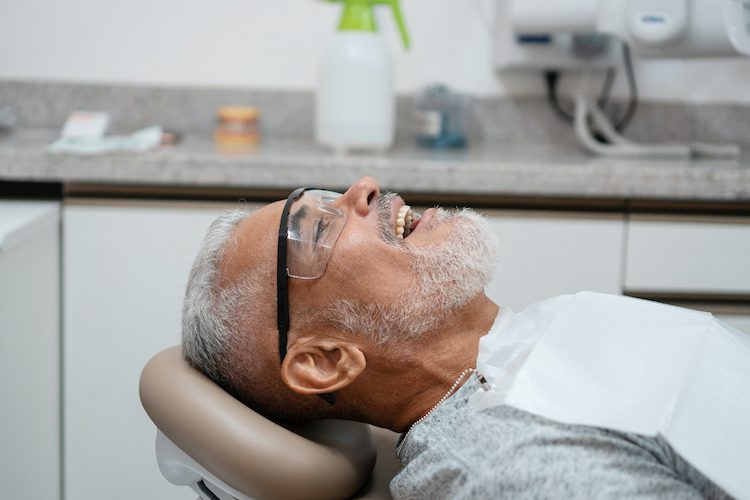Many people fear dental visits. This fear often leads to neglecting oral hygiene. Sedation dentistry offers a solution. It could make dental procedures more comfortable using medication to help patients relax. Understanding how sedation dentistry works is crucial. It can help patients make informed decisions about their oral health.
Understanding Sedation Dentistry
Sedation dentistry involves administering sedatives. These drugs often help patients relax during dental procedures. Dentists use different levels of sedation. Minimal sedation keeps you awake but relaxed. Moderate sedation, or “conscious sedation,” makes you drowsy. Deep sedation puts you on the edge of consciousness.
Each sedation level serves a specific purpose. Minimal sedation suits patients with mild anxiety. It allows them to remain aware of their surroundings. Moderate sedation suits those with moderate fear. It helps them feel calm and less aware of the procedure. Deep sedation and general anesthesia suit complex procedures. They require the patient to be completely relaxed or unconscious.
Dentists choose the appropriate level based on the procedure and patient’s anxiety. Oral sedatives, inhaled gas, and intravenous sedation are common methods. Oral sedatives are usually pills taken before the procedure. Inhaled gas, like nitrous oxide, provides a calming effect. Intravenous sedation is administered through a vein. Dentists monitor patients closely to ensure safety and comfort throughout the procedure. Monitoring involves checking vital signs and responsiveness. This vigilance ensures the patient’s well-being.
Reducing Dental Anxiety
Many people avoid dentists due to anxiety. This avoidance can worsen oral hygiene. Routine dental care helps keep your teeth and gums free of plaque and tartar. Without regular dental cleanings, your oral health could be in jeopardy. Sedation dentistry often reduces fear and anxiety, allowing patients to get the treatment they need for a healthy smile.
Dental anxiety stems from various sources. Some fear the pain associated with procedures. Others worry about the loss of control. The sounds and smells of a dental office can trigger anxiety. Sedation dentistry often provides a calming effect that eases the mind. Patients could feel less stressed and more willing to return for routine dental care. This increased willingness often leads to better oral hygiene. Overcoming dental anxiety can transform a patient’s outlook on oral health and foster a proactive approach to dental care.
Improving Oral Hygiene
Sedation dentistry often encourages patients to undergo necessary procedures. These procedures include cleanings, fillings, and root canals. Regular dental care prevents cavities and gum disease. It also addresses existing issues before they worsen. Patients with severe dental problems could benefit from sedation. It often allows dentists to perform complex procedures in fewer visits. This efficiency typically reduces overall treatment time. Patients often experience less discomfort and stress. They could maintain better oral health as a result.
Neglecting oral hygiene can lead to serious health issues. Gum disease links to heart disease and diabetes. Untreated cavities can cause infections. These infections may spread to other parts of the body. Sedation dentistry could help prevent these complications by ensuring patients receive the care they need.
Who Can Benefit?
Sedation dentistry suits many individuals. People with dental phobia often benefit the most. It could also help those with a low pain threshold. Patients with sensitive teeth may also find relief through sedation. Those needing extensive dental work often appreciate the comfort it provides. Sedation dentistry could also aid patients with gag reflexes. It often allows them to undergo procedures without discomfort. Children and adults with special needs may benefit as well. It ensures they receive necessary dental care in a safe environment.
Considerations and Safety
Safety remains a top priority in sedation dentistry. Dentists receive special training to administer sedatives. They monitor vital signs throughout the procedure. Patients should disclose medical history and current medications. This information helps the dentist choose the appropriate sedative.
Most patients tolerate sedation well. However, some may experience side effects. These include drowsiness, dry mouth, or nausea. Discuss any concerns with your dentist before the procedure. They address your questions and ensure your comfort. Patients should arrange transportation after the procedure. Sedation can impair your ability to drive. Plan for someone to accompany you to and from the appointment. This precaution ensures your safety.
Frequently Asked Questions
How long does it take for sedation to wear off after my visit?
It depends on the type of sedation used. Nitrous oxide wears off within minutes after the gas is turned off, and most patients can drive themselves home. Oral or IV sedation can take several hours to fully wear off, so you’ll need someone to drive you and stay with you afterward.
Are there any health conditions that might prevent me from using sedation?
Yes, certain conditions like severe respiratory problems, uncontrolled diabetes, or heart issues may affect your ability to receive sedation safely. We will review your medical history to decide what’s safe for you. Always share all medications and health conditions before treatment.
Can sedation help if I have extreme tooth sensitivity?
Yes, sedation can help manage discomfort and reduce anxiety if you have very sensitive teeth. It relaxes your body and lowers how strongly you react to sensations. Combined with numbing, it makes treatment more comfortable and less stressful.
What’s the difference between nitrous oxide and oral sedation?
>Nitrous oxide is a mild gas that works quickly and wears off fast—you stay awake and aware, just more relaxed. Oral sedation involves taking a pill before your visit, leading to deeper relaxation that can make you drowsy or forgetful. You’ll need a ride home with oral sedation, but not with nitrous in most cases.
How do I know which level of sedation is right for me?
Your dentist will recommend the right level based on your anxiety level, medical history, and the type of procedure. Mild anxiety may only need nitrous oxide, while deeper fears or longer treatments might call for oral or IV sedation. The goal is to keep you comfortable and safe.
Is sedation helpful for patients with strong gag reflexes?
Yes, sedation can relax your throat muscles and reduce your gag reflex, making it easier to tolerate dental work. It helps keep you calm and still, so your dentist can work more efficiently. Many patients with sensitive gag reflexes find sedation very helpful.
Sedation Dentistry in Canton, TX
At Mill Creek Dental, our experienced team offers sedation dentistry. We prioritize patient comfort and safety. No matter how severe your dental anxiety is, we are here to help. Contact our office today to schedule a consultation and learn more about how sedation could improve your oral hygiene today.

